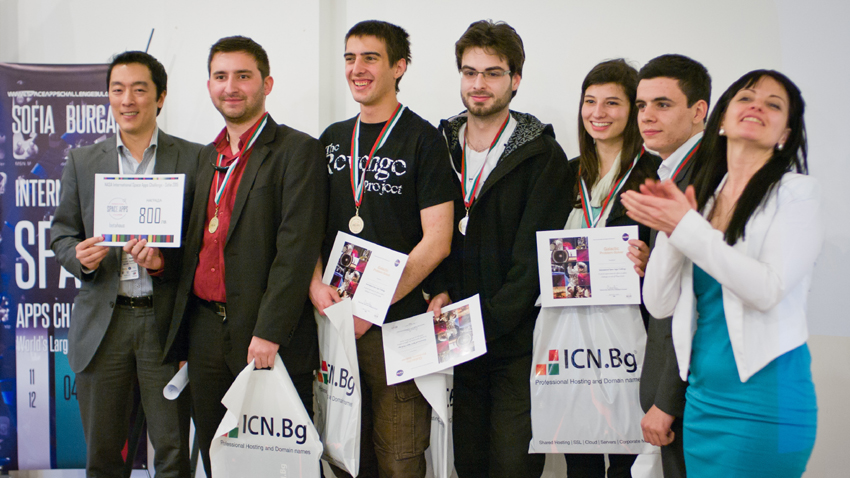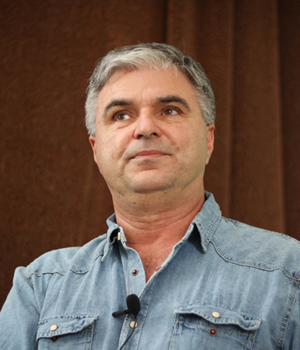A smart glove that is capable of remotely controlling home appliances and even spaceships. The innovative design brought the first place to its creators - a team of 11 Bulgarian students, in the prestigious NASA - Space Challenge 2015. This international forum is a real challenge for the participants due to intense competition and tight deadlines for project preparation - just 48 hours. The aim is to create a variety of applications and machines to improve life on Earth and in space. The Bulgarian invention called "Valkyrie" entered a close battle with nearly 1,000 projects from around the world. Just for two days the Bulgarian team developed a working prototype of the "smart glove." It is made of leather and synthetic materials so it is convenient for everyday use. It looks like a sports mitten, but contains a number of sensors that recognize 16 different movements. According to its creators, the glove is capable of memorizing 60 more. Moreover, it can work for about 70 hours without stopping.

More from Martin Kuvandzhiev, a student at the Technical University in Sofia and leader of the project:
"We created something that is closer to the people. It is a ‘smart’ glove that can be used not only by astronauts but by everyone. This could be, for example, a businessman who manages his entire home using a glove and a mobile application. It can be used by people who want to make the perfect presentation. The glove could measure the heart rate of athletes and calories burnt. The smart glove can be used by astronauts, who can use it to control spacecraft or robotic arms. "
All this is possible thanks to a special application that processes the data obtained through movements or voice commands. Currently the glove understands only English because the development of an algorithm for recognizing Bulgarian is not an easy task and requires more time, Martin says.
 The successful Bulgarian team includes mainly students of the Technical University, but also includes a Bulgarian who studies at the Sheffield University and a high-school student from Burgas. “According to our data, 15% of our graduates work for large European and American companies. Many of them work for Facebook, Microsoft, etc. Those who remain in Bulgaria also work in the centers of these companies here.” Prof. Ognyan Nakov, dean of the Faculty of Computer Systems at the Technical University, says. According to him, software developers are a key factor in attracting IT investors to the country. "The surplus value of a software product is huge. Perhaps only the surplus value in weapon production is bigger,” the professor says. He told us more about the importance of the international recognition:
The successful Bulgarian team includes mainly students of the Technical University, but also includes a Bulgarian who studies at the Sheffield University and a high-school student from Burgas. “According to our data, 15% of our graduates work for large European and American companies. Many of them work for Facebook, Microsoft, etc. Those who remain in Bulgaria also work in the centers of these companies here.” Prof. Ognyan Nakov, dean of the Faculty of Computer Systems at the Technical University, says. According to him, software developers are a key factor in attracting IT investors to the country. "The surplus value of a software product is huge. Perhaps only the surplus value in weapon production is bigger,” the professor says. He told us more about the importance of the international recognition:"It is good that once again we hear about the success of Bulgarian specialists in software and application development. The bad thing for this country is that some of these young people will probably leave if they are offered better working conditions abroad. On the other hand, they attract foreign investors. Last month, two large foreign investors voiced their plans to develop software centers that are to employ 300-500 programmers. Such companies pay high salaries, which is good for this country.”
English: Alexander Markov
Photos: Cyril Miloshev /pictures are provided by the Faculty of Computer Systems and Control of TU/
The Bulgarian-Albanian Business Chamber (BABC) will support the connections between the Albanian and Bulgarian communities in the business sector, with the ambition to create a unique space that will link the diaspora with its roots. It will play an..
After almost 80 years, a new breeding colony of the endangered Dalmatian pelican has appeared in Bulgaria . The birds have settled on artificial islands built by the Bulgarian Society for the Protection of Birds (BSPB) in the Mandra-Poda Complex, a..
On 25 January 1935, Tsar Boris III signed the decree establishing the Bulgarian National Radio. The document, which officially marked the beginning of "Radio Sofia", as the Bulgarian National Radio (BNR) was then called, made radio broadcasting in Bulgaria..
On February 16, Radio Bulgaria celebrates its 89th anniversary . Throughout these years, our multilingual media has been not only a channel of information,..
At various times in its existence, the BNR's Directorate of Foreign Language Broadcasts, now known as Radio Bulgaria, the multimedia multilingual platform..
February 16, 2025 marks the 127th anniversary of the first bulletin of the Bulgarian Telegraph Agency, signed by its first director Oscar Iskander. The..

+359 2 9336 661
